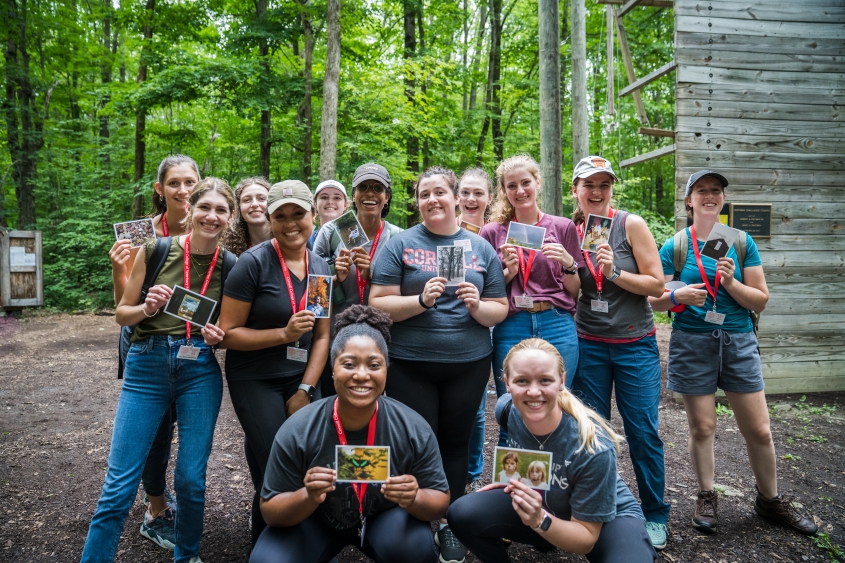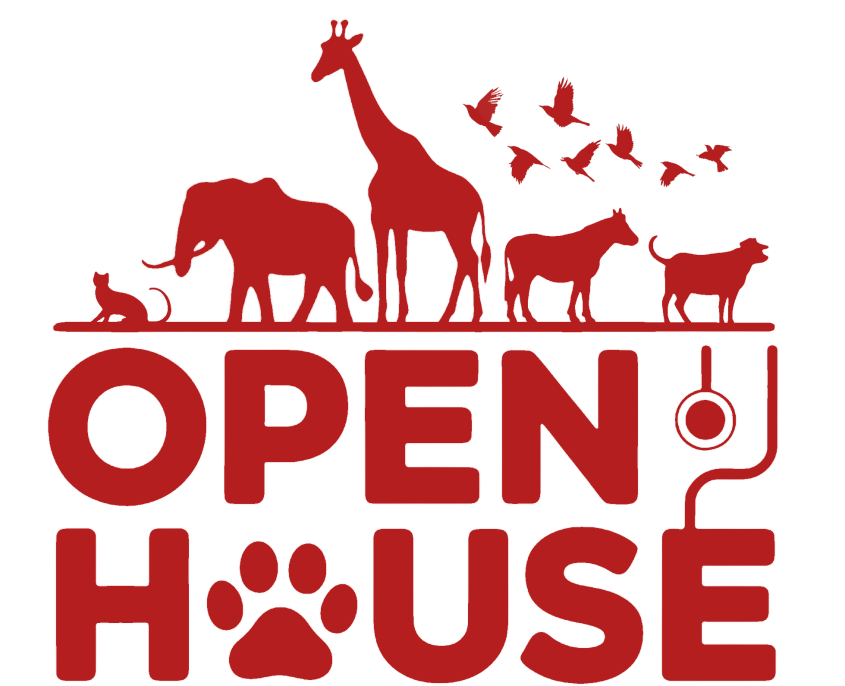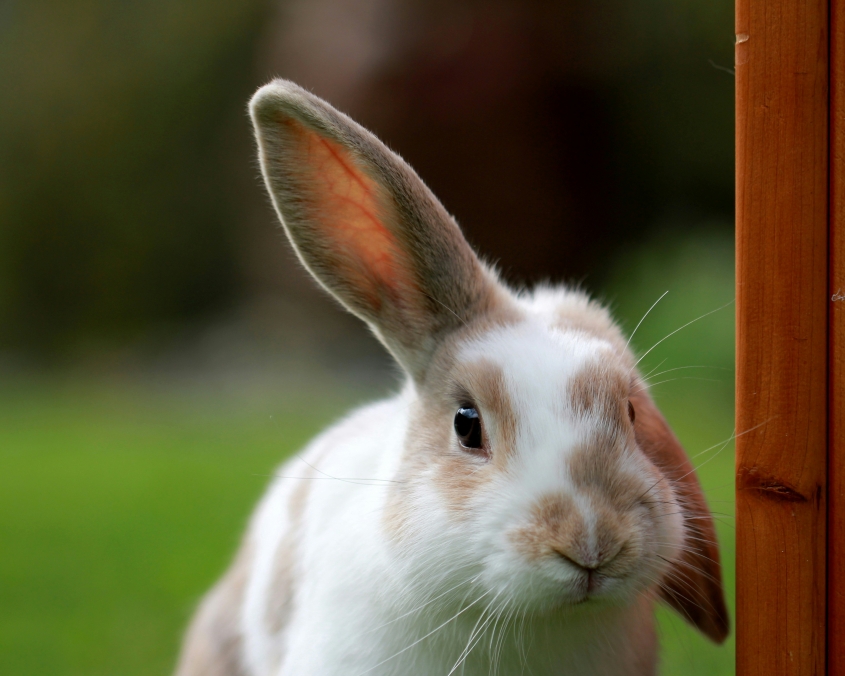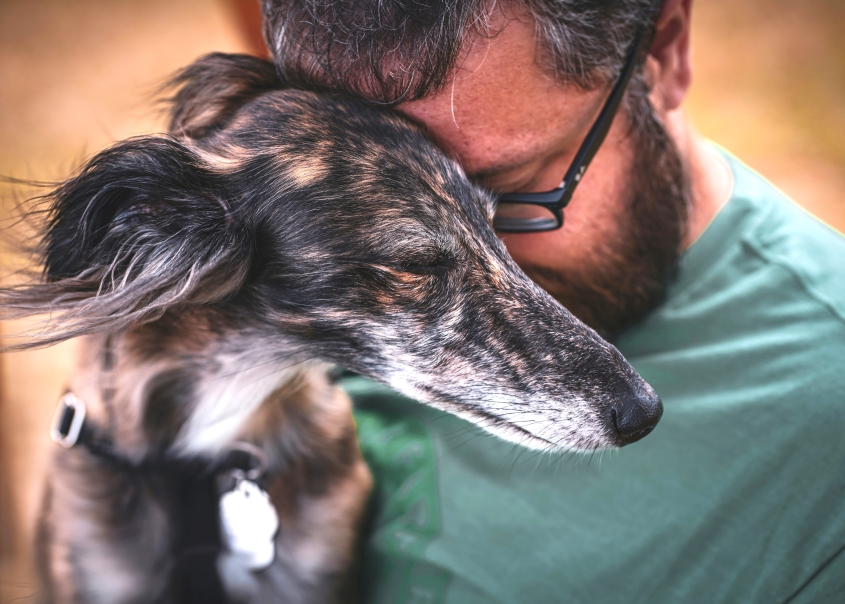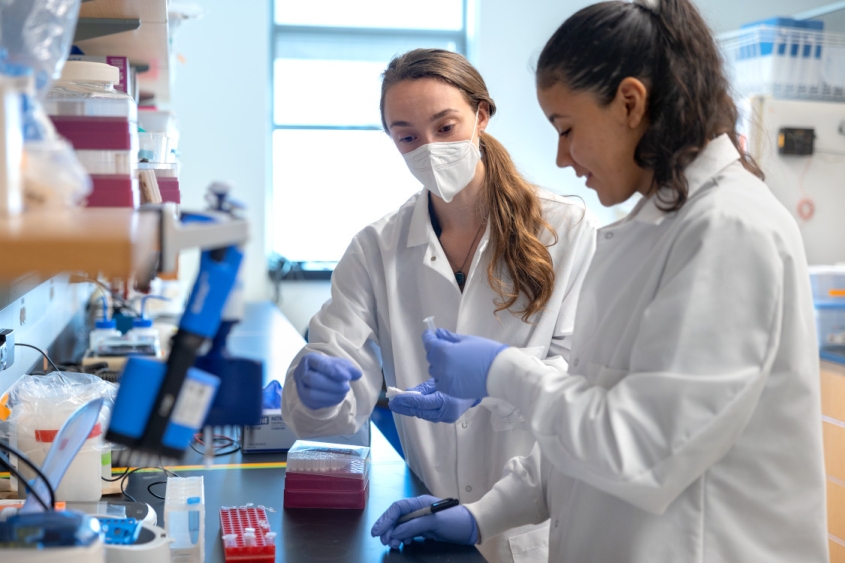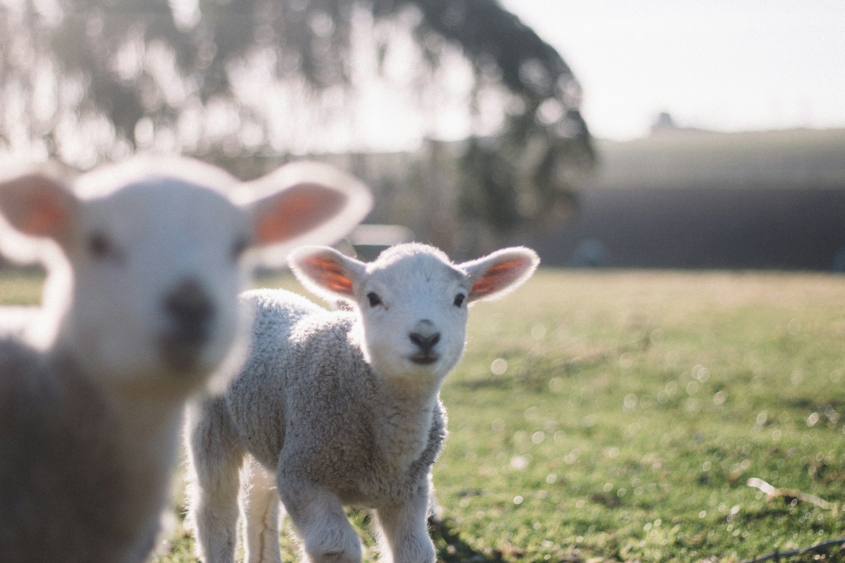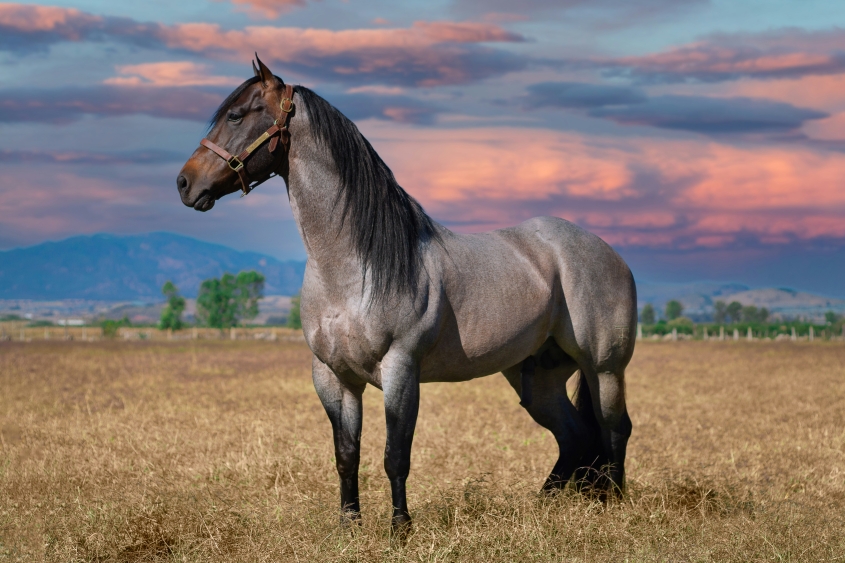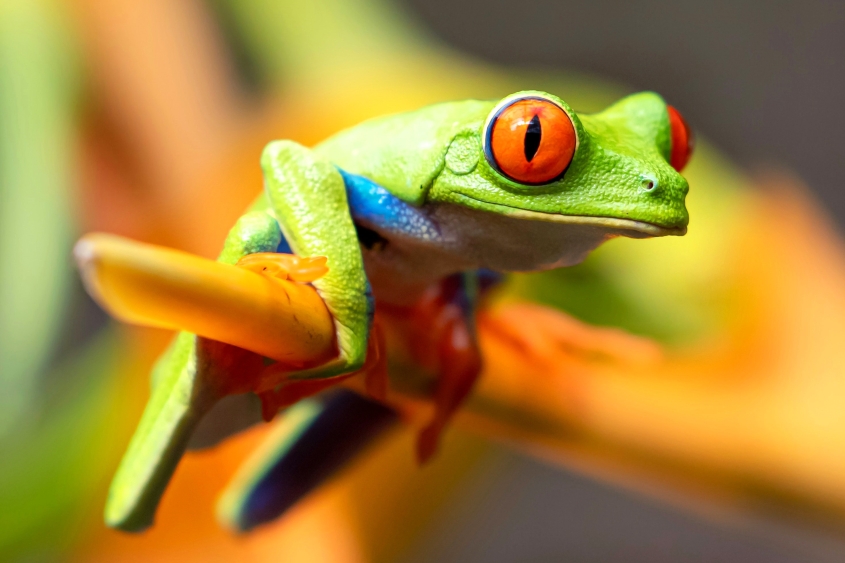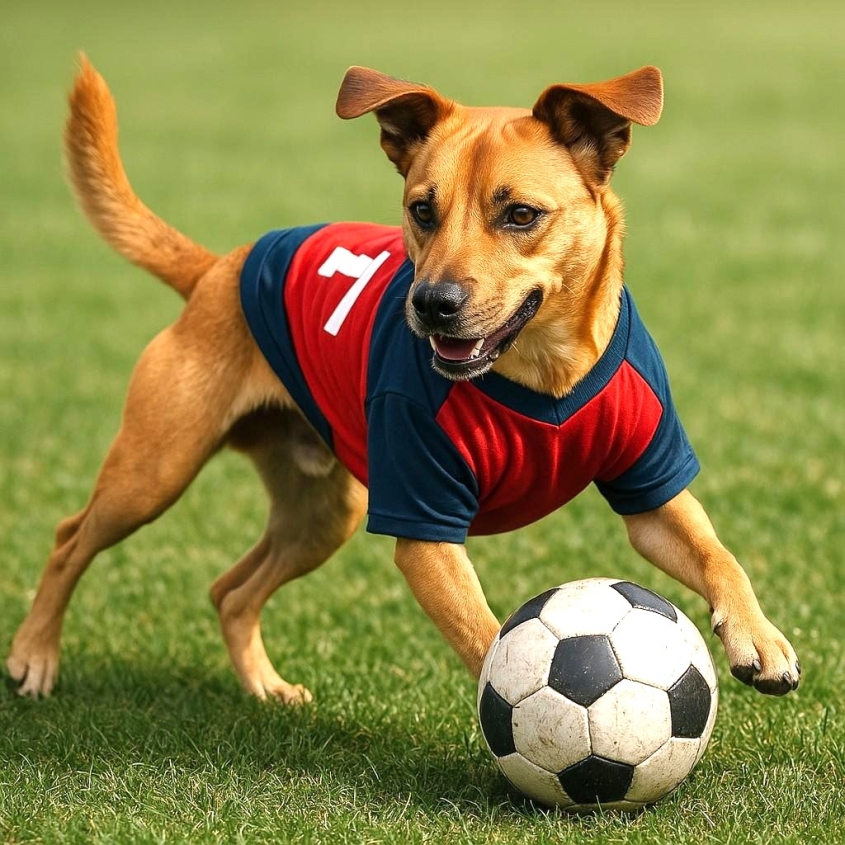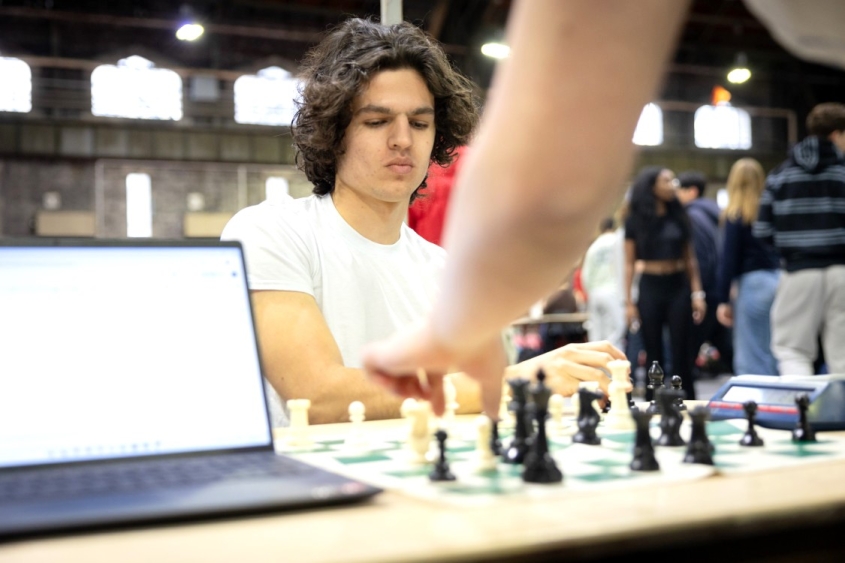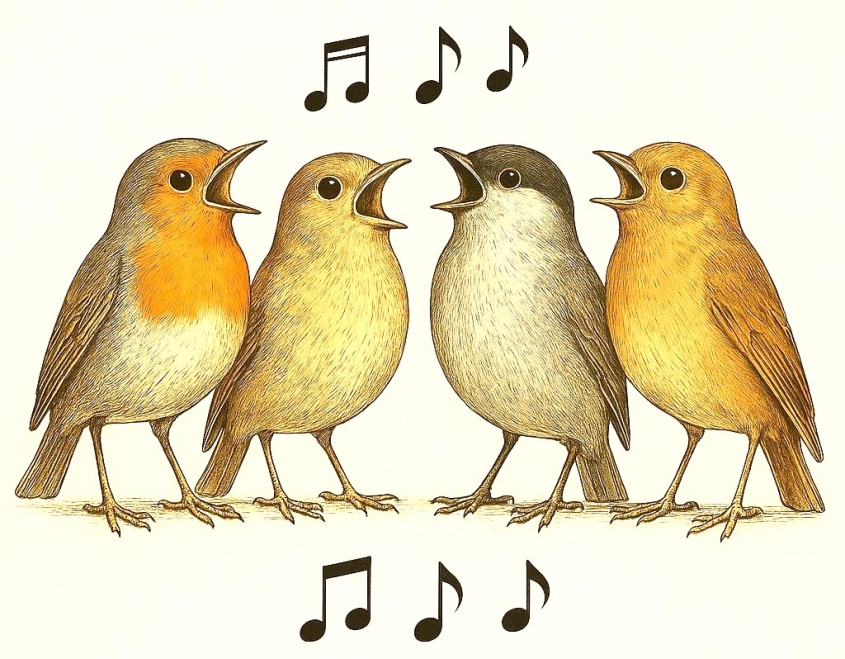Despite their demanding academic schedules, our students are involved in various veterinary and non-veterinary extracurricular activities. Participation in organizations and clubs is an integral part of the student experience at the College. Participation in organizations and clubs is an integral part of the student experience at the College of Veterinary Medicine. It provides an excellent networking opportunity, making friends, developing leadership skills, and/or learning about specific topics in veterinary medicine.
Student Leadership and E board
Student American Veterinary Medical Association (SAVMA)
The Student Chapter of the American Veterinary Medical Association serves the student body in several different capacities. It represents the national AVMA and publicizes the benefits of AVMA membership for the profession. Most of their energies are directed toward operating a student government that addresses the needs of the College's students. The student government identifies and resolves any problems between the student body and the administration and aims to improve the quality of veterinary education continually. SAVMA organizes social events for the whole school to attend, such as the Fall and Spring Picnics, the Auction to send students to the SAVMA symposium, and receptions for the Dance Collective Showcase and Mister Cornell.
SAVMA officers are elected in the late fall and serve terms from January to December. The board consists of a President, a Vice-President, a Treasurer, a Secretary, one Class Representative per class, two Social Chairs, a Retail Committee, an Intramural Sports Chair, two Alumni Chairs, two Philanthropy Chairs, an IVSA Representative, two Public Relations Chairs, two Fundraising Chairs, a Webmaster, a GPSA Representative, the members of the Honor Board and the Curriculum and Admissions Committees, two NYSVMS delegates, and two SAVMA delegates. SAVMA delegates are elected for a two-year term and represent Cornell at the national SAVMA and AVMA conferences.
Visit to join or learn more
Open House
Open House is a day-long event held each April that is run by students. Exhibits and information booths are set up to educate the public about animals in general, pet care, wildlife, and just about anything else that related to veterinary medicine. The Open House Committee comprises second-year students, but the responsibility to prepare and staff the exhibits falls on the first-year students. Popular attractions include the painted horse and cow, large animal exercise treadmill, cow milking, baby animals, and many others. Posters and other materials are already available from past years, but anybody with a particular interest is encouraged to design a new display.
Open House attracts thousands of people from the surrounding area. It is a great public relations opportunity for the College and the veterinary profession. The public is enthusiastic about the exhibits and enjoys learning and interacting with the students. If your family and friends are looking for a special time to visit, recommend Open House weekend. For additional entertainment, the Veterinary Players usually hold their annual musical on Open House weekend.
Learn more about Open House
Honors Organization
Phi Zeta
The Alpha Chapter of Phi Zeta was established in 1925 as the first chapter of the Honor Society of Veterinary Medicine. Chapters have now been established in all veterinary colleges. The purpose of Phi Zeta is to promote, acknowledge, and reward scholarship in the profession of veterinary medicine. Membership includes students and faculty. Third-year students ranking in the top 10% of the class and fourth-year students ranking in the top 25% of the class are invited to become members. In the past, the Alpha Chapter has sponsored research poster competitions and a book drive to send textbooks to third-world veterinary schools that don't have many books for students to use. Both active and honorary faculty memberships are available.
Phi Zeta sponsors both a local chapter and national post-graduate manuscript competition annually. An annual banquet is held each April to welcome new members. Each year, the Alpha Chapter recognizes the highest-ranking second-year student at the Honor Day Banquet in May with the annual Phi Zeta award.
Volunteer & Career Development Opportunities
Small Animal Clinical Skills Club (SACS)
The Small Animal Clinical Skills Clubs (SACS) at Cornell is devoted to improving clinical skills students have limited opportunities to practice. To this end, we host lectures and wet labs; for example, in previous years have had labs on dental radiography and dental techniques such as scaling and nerve blocks. All of the labs are hands-on, allow students to practice skills on cadavers, and are taught by residents or technicians in the hospital.
Perhaps our most important events are vaccine and SNAP test clinics that we host in the fall and spring. These are open to students, staff, and faculty of the vet school and usually draw in about 60 animals per clinic. Club members and volunteers run the entire clinic, from vaccine administration to blood draw, under the supervision of our trusted advisers, Pati Kirch, LVT/Teaching Support Specialist, and Carolyn McDaniel, VMD/Senior Lecturer, Department of Clinical Sciences.
Learn more or join
The Pet Loss Support Hotline
The Cornell University Pet Loss Support Hotline was established in 1996. Volunteers staff the hotline, and both veterinary students and other members of the Cornell community, who are trained by a professional grief counselor.
Members regularly attend discussion meetings with faculty advisors who assist hotline volunteers in dealing with the personal responses to grief and educate them to serve the needs of callers better.
Dealing with pet loss and grief will most certainly be a part of every clinician's job. The hotline not only helps those callers who are grieving over the loss of their pet, but it also helps us as students to become compassionate clinicians. Training sessions for new volunteers are held twice a year, at the start of each semester, so be on the lookout for posters announcing our introductory meeting.
Visit to learn more
Spay Day
Spay Day is a veterinary school club that aims to increase awareness of the need for as well as access to spay/neuter to save animal lives. We aim to give further hands on experience opportunities to veterinary students. By holding spay/neuter clinics for the community, Spay Day aims to help in animal overpopulation, reduce animal diseases, increase owner education and teach students the appropriate way to safely and efficiently spay or neuter an animal.
Learn more about Spay Day
Veterinary Student Journal Club
To engage veterinary students in current professional journal literature and to advance their skills in interpreting findings, clinical significance, and relevance in the scope of veterinary practice.
Learn more or join
Service Dog Training and Educational Program
The mission of STEP@Cornell is to promote the presence of assistance animal organizations on campus and assist these organizations by fundraising for them, acting as a liaison between the organizations and the greater Cornell community, educating the vet community about assistance dogs and this unique sector of animal behavior, and providing opportunities to raise and train an assistance dog. STEP@Cornell is dedicated to helping serve the organizations within the community that provide assistance animals to those who need them.
Southside Healthy Pet Clinic
The Southside Community Center Healthy Pet Clinic is a community service program that is organized to provide fee-reduced, healthy-pet veterinary care to individuals who could otherwise not afford these services. It also provides veterinary students with the opportunity to develop client communication skills, to practice physical examinations, and become familiar with vaccination protocols and other aspects of routine pet health maintenance.
The project is arranged through the collaborative efforts of the Southside Community Center, the Community Practice Service (CPS) staff, and the veterinary school's student body. Since November 1996, Southside has provided veterinary services on the second and fourth Wednesday of every month by appointment. Southside also runs a healthy pet clinic each fall and spring in varying locations around New York State. Currently, Southside provides vaccinations and addresses basic health maintenance issues such as deworming, nutrition, dental care, and flea control.
Learn more about Southside
Veterinary Education Club
Cornell's Veterinary Education Club aims to serve our Student Body through events and activities that enhance student wellness and integrate our students into the local community. We work with the Office of Student Academic Services to promote relevant programming and coordinate with other organizations to promote events related to student wellness.
The Veterinary Education Club also educates the local community about current veterinary issues via outreach programs. We work with local 4-H clubs, and the undergraduate Pre-Veterinary Society, and this year we will be working with some of the local elementary schools. This is a fantastic outlet for current veterinary students who are interested in becoming involved in academia, clinical instruction, and/or public outreach.
Veterinary Business Management Association (VBMA)
Ever wonder how you'll find your first job as a veterinarian? How will you balance work and home? How will you find a summer job? How are you going to haul yourself out of debt? Whether you should become a specialist? VBMA was founded specifically to address "any issue vaguely related to money." The club's goal is to to educate fellow students on the "other" aspects of being a veterinarian, such as finances, practice management, and career exploration.
Veterinary One Health Association
The objectives of the organization are as follows: 1) to provide veterinary students with educational opportunities in the one health aspects of veterinary medicine; 2) to aid in the career development of students by informing them of the opportunities available in the one and public health sector; 3) to enhance leadership characteristics and skills; 4) to increase awareness of disease and biosecurity as it pertains to food safety, environmental health animal health, and public health; and 5) to host an annual Veterinary One Health Symposium.
Visit One Health to sign up
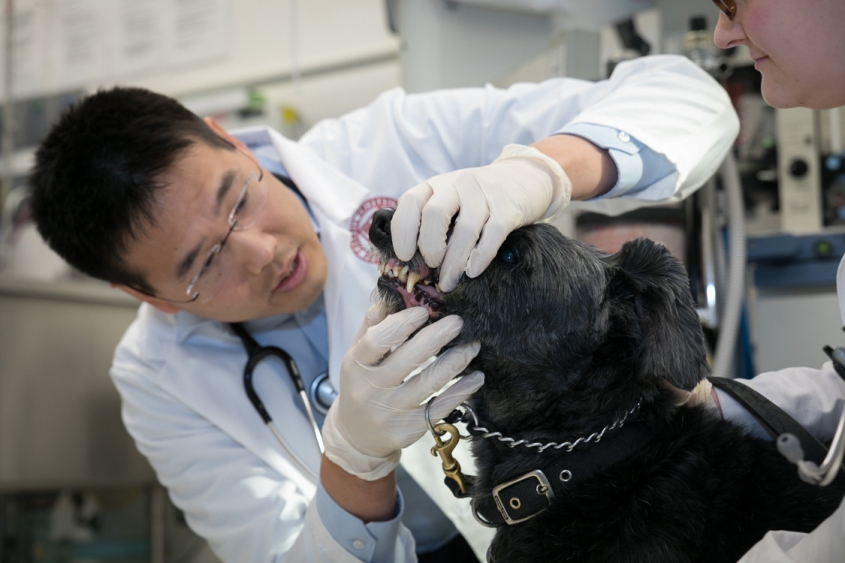
International Outreach
Veterinarians Internationally Developing Animal Health (VIDA)
VIDA is an organization aimed at furthering the interests of students who wish to work internationally. VIDA hosts presentations throughout the year from students who have worked abroad during the previous summer. It also hosts speakers from national organizations that fund projects involved in international veterinary medicine and animal health.
Specialty Area of Interest
Species
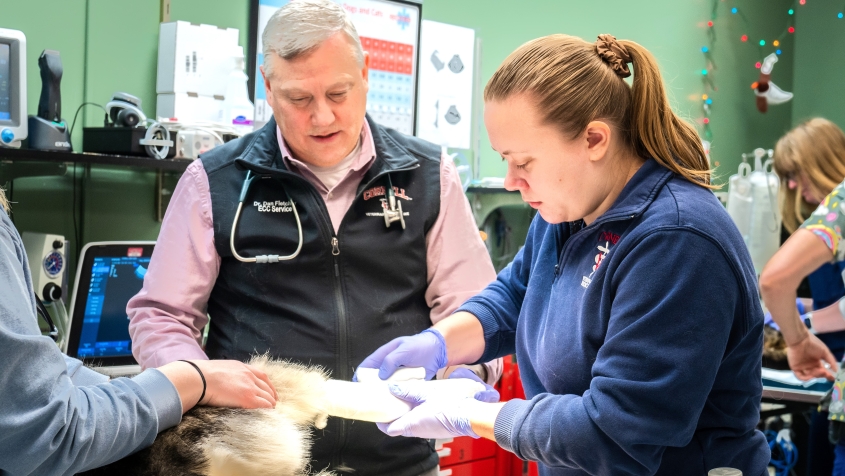
American Association of Bovine Practitioners (AABP)
The Cornell Student Chapter of the American Association of Bovine Practitioners is an academic organization of future veterinarians. Through our sponsored activities (guest lectures, farm visits, wet labs), we strive to fulfill the mission of the National AABP, an international association of veterinarians serving society as leaders in cattle health, welfare and productivity.
American Association of Small Ruminant Practitioners (AASRP)
For those who don't have much experience with large animals, AASRP is a great way to ease into the farm animal world! AASRP is a club devoted to teaching students of all interests about the care of goats, sheep, llamas, and alpacas. Activities include various lectures on sheep/goat management, hoof trimming, sheep sheering, wet labs, venipuncture labs, and visits to local sheep, goat and llama farms. They welcome anyone interested in learning more and interacting more with small ruminants which are rapidly becoming more popular as dairy animals and as pets.
Learn more or join
American Association of Feline Practitioners
The Student Chapter of the American Association of Feline Practitioners (SCAAFP) is a student organization dedicated to promoting interest in feline medicine and surgery. Through lectures, wetlabs, field trips and community service activities, we hope to increase awareness of all feline-related issues.
American Association of Equine Practitioners (AAEP)
The student chapter of the AAEP is devoted to presenting equine topics of interest to the members of the veterinary college. The AAEP offers activities designed to appeal to both those with very little equine experience and those who have been around horses their entire lives. The opportunity to learn/practice a variety of skills needed in equine practice is offered in wet labs which have in the past included: shoeing, venipuncture, vaccination, endoscopy, nasogastric intubation, teeth floating, restraint, lameness examinations, rectal palpation, prepurchase examinations, and joint injections.
Lecture/discussion topics may include the presentation of research done by both Cornell faculty and those working outside the college, information sessions on new equine products, and other topics of interest, such as breeds and colors, race track practice, equine nutrition, the role of women in equine medicine and the relationship between veterinarians and farriers. The AAEP is a large and active club at Cornell. It exists to serve the needs of those students who might be interested in entering equine or mixed practices (or anyone with an interest in horses). Activities will be tailored to the needs of its members as much as possible.
Learn more or join
Association of Avian Veterinarians
SCAAV works to enhance the educational opportunities of the veterinary students in the NYSCVM in regard to avian welfare and healthcare, specifically by informing students about veterinary problems and diseases, husbandry issues, preventative medicine, and scientific research currently encountered in dealing with both captive and wild birds.
Learn more or join
Association of Reptilian and Amphibian Veterinarians (ZAWS)
Association of Reptilian and Amphibian Veterinarians (ZAWS)
We aim to train veterinary students so that they can contribute to advancing reptilian and amphibian medicine, surgery, and conservation. We enhance the educational opportunities of the professional students in the veterinary college to learn about reptilian and amphibian medicine by hosting lectures and wet labs about veterinary problems and diseases, preventative medicine, husbandry issues, and scientific research currently encountered in dealing with both captive and wild exotic species.
Learn more or join
Skills & Knowledge
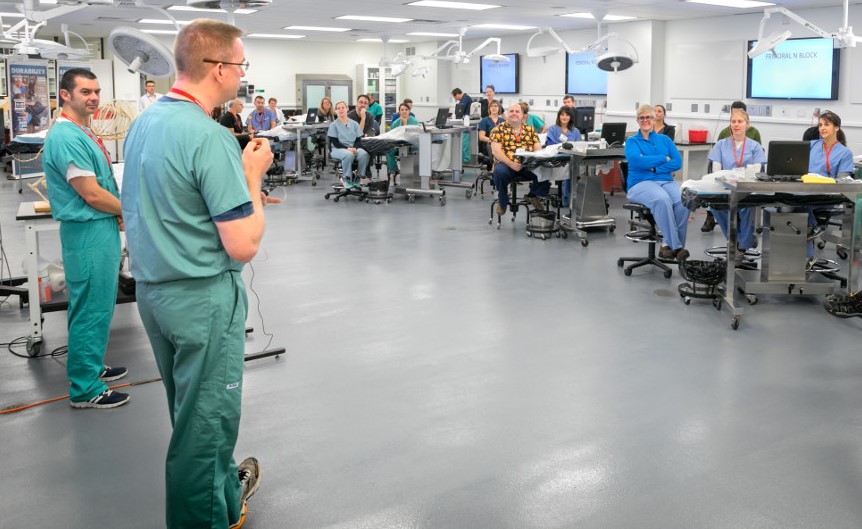
American Veterinary Society of Animal Behavior Club
The goals of the Animal Behavior Club are to promote the importance of animal behavior in veterinary medicine and other animal-related professions through educational opportunities in relation to animal behavior. Throughout the year, lectures and behavior rounds will be conducted, as well as workshops and hands-on trainings, providing valuable continuing education to students in the field of veterinary behavior.
Learn more or join
Cardiology Club
The purpose of Cardiology Club is to organize cardiology rounds, lectures, and wet labs for veterinary students and other interested graduate students to get more exposure in the cardiology service.
Learn more or join
American College of Veterinary Pathologists
As a student chapter of the American College of Veterinary Pathology, the Pathology club, aim:
- To encourage veterinary student involvement in the field of veterinary pathology and provide an additional opportunity for its associates to gain professional knowledge in this field. To make available to the students the opportunities offered by the American College of Veterinary Pathologists to its Student Chapters.
- To contribute to the development of the field of veterinary pathology at Cornell University through activities involving the faculty and student associates.
Learn more or join
Association of Veterinary Scientists
To enhance collaboration and scientific growth between veterinary students, residents, and researchers interested or involved in veterinary science research.
Learn more or join
Surgery Club
This club seeks to provide veterinary students with additional exposure to the world of veterinary surgery through lectures, wet labs, workshops, and other activities.
Learn more or join
Student Chapter of the Veterinary Emergency and Critical Care Society (SVECCS)
The Student Chapter of the Veterinary Emergency and Critical Care Society is dedicated to providing greater exposure to veterinary emergency and critical care specialties. Their focus is in-depth lectures and hands-on wet labs giving students basic and advanced skills needed in many emergencies. In addition, the Trauma Team allows students to volunteer in the ICU and assist in emergencies.
Learn more or join
Society for Veterinary Ophthalmology
The mission of the Society for Veterinary Ophthalmology is to promote student participation and interest in veterinary ophthalmology by providing opportunities for students to further their education in the field.
Society for Veterinary Pain Management
As a student chapter of the International Veterinary Academy of Pain Management, we hope to familiarize students with the multi-faceted world of pain management, as it will be an integral part of their careers and lives.
Learn more or join
Theriogenology Club
The Student Chapter of the Society for Theriogenology is an organization for students who are interested in the study of reproduction in animals. In particular, it hopes to acquaint the student with the varying aspects of reproduction as it pertains to veterinary medicine - disease prevention, diagnosis, treatment, surgery, research, and related fields.
Veterinary Radiology Club at Cornell University
The purpose of the Cornell University Veterinary Radiology Club is to promote and encourage the study of radiology and other diagnostic imaging modalities by exploring all aspects of diagnostic imaging and radiotherapy through presentations, learning modules, and hands-on experience.
Diagnostic imaging modalities include: small and large animal diagnostic radiology, diagnostic ultrasound, nuclear medicine, computed tomography, and magnetic resonance imaging.
Learn more or join
Habitat-Focused Animal Care
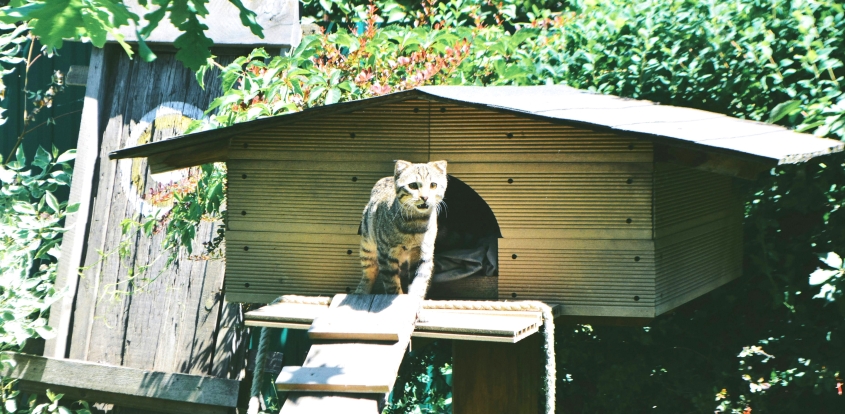
Wildlife Disease Association
The objectives of the Student Chapters of the Wildlife Disease Association include the mission of the WDA, and more specifically aim to educating students interested in wildlife health and disease about the profession, career opportunities, job qualifications, externship opportunities.
We also aim to enhance the skills of these students through lectures, workshops, conferences, and field trips. Finally, by connecting students interested in wildlife health and disease to mentors in WDA, networking is one of our main objectives.
Learn more or join
World Aquatic Veterinary Medical Association
The Mission of the Chapter is to provide Cornell University College of Veterinary Medicine students with information on aquatic veterinary educational, career and other opportunities, and to develop programs useful for the World Aquatic Veterinary Medical Association to help increase the knowledge, skills and involvement of veterinary students at CUCVM, and elsewhere, in aquatic veterinary medicine.
Zoo and Wildlife Society (ZAWS)
ZAWS is the Cornell Student Chapter of the American Association of Zoo Veterinarians, and is the umbrella organization for the student chapters of the Association of Avian Veterinarians, the International Association of Avian and Aquatic Medicine, and the Association of Reptile and Amphibian Veterinarians. Their goals are to further our knowledge of zoo, exotic, and wildlife species medicine and provide a forum for career guidance.
The club presents lectures and wet labs on relevant topics and occasional field trips to zoos, aquaria, or wildlife preserves. In addition, they host a biannual "Special Species Symposium" featuring a wide spectrum of topics presented by renowned authorities in zoo, wildlife, exotic, and aquatic animal medicine.
Learn more or join
Veterinary Medicine
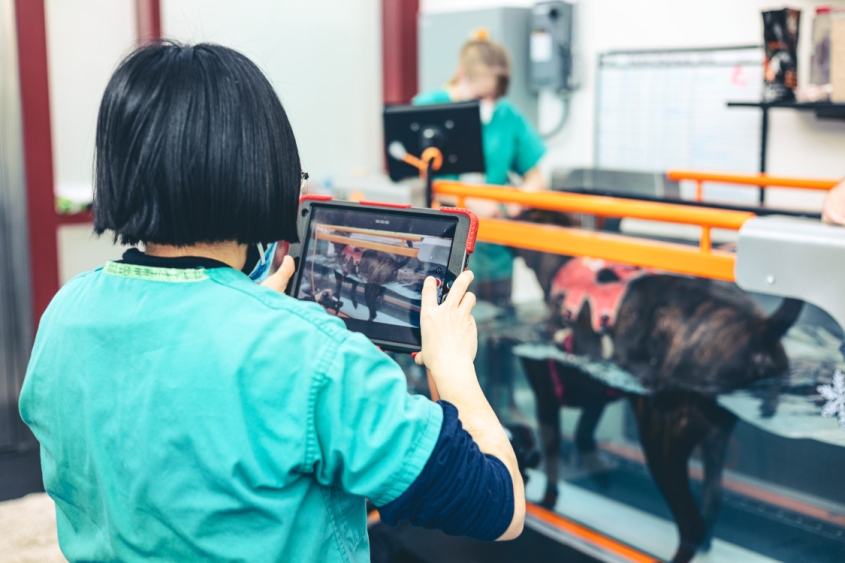
American Society of Laboratory Animal Medicine
The purpose of the Student Chapter of the American Society of Laboratory Animal Practitioners is to foster educational activities in the veterinary specialty of Laboratory Animal Medicine and to familiarize the members with standards, regulations and techniques pertaining to this discipline.
Learn more or join
Veterinary Internal Medicine
The purpose of the Chapter is to promote the specialties of cardiology, neurology, oncology, large animal internal medicine, and small animal internal medicine through the advancement of knowledge to veterinary medical students.
Learn more or join
Integrative Medicine Club
The HVMC is the American Holistic Veterinary Medical Association (AHVMA) student chapter. We aim to inform our colleagues in the veterinary school about the different treatment modalities available to them when they begin to practice veterinary medicine.
Our mission is to increase awareness of medical modalities that are not considered conventional medicine, and to educate ourselves, the community, veterinarians, and technicians about these modalities so we can make educated decisions. To this end, we organize speakers to talk to veterinary students about the modalities they have used to treat their patients.
These modalities include acupuncture, chiropractic, massage, herbal medications, homeopathy, etc. We all should be educated on alternative/complementary/holistic medicine to better inform our clients and offer them advice on different therapies.
Learn more or join
Sports Medicine Club
The Sports Medicine Club provides education and information on prevention, recognition, care, and rehabilitation of injuries within equine and canine sports medicine. It promotes the human-animal bond through activities that get people outside and working with their dogs.
These activities may include agility, hiking, herding, tracking, Canine Good Citizen training and testing, and others as members choose. All breeds, mutts, sizes, ages, and fitness levels are welcome! Activities will be scheduled to provide students with a variety of dog-friendly options for relaxation and exercise. Lectures will focus on canine and equine athlete maintenance, training, and injuries.
Learn more or join
Shelter Medicine Club
Founded, in 1998, the Shelter Medicine Club's mission is to expose veterinary students to the myriad of issues surrounding animal sheltering and animal welfare issues. They conduct weekly visits to our local SPCA to conduct physical exams on shelter animals, giving students hands-on experience in shelter medicine while practicing their diagnostic skills.
They host speakers on various subjects ranging from careers in animal sheltering medicine, humane animal handling, rescuing animals during disasters, animal behavior, and pet overpopulation. They often work together with other clubs on animal welfare-related topics, and we'll also be hosting brown bag discussions on various issues. With one of the highest memberships in the veterinary school, our club welcomes all students who want to learn, have fun, and contribute to the community and animals all at the same time.
Signup to join
Identity/Belonging
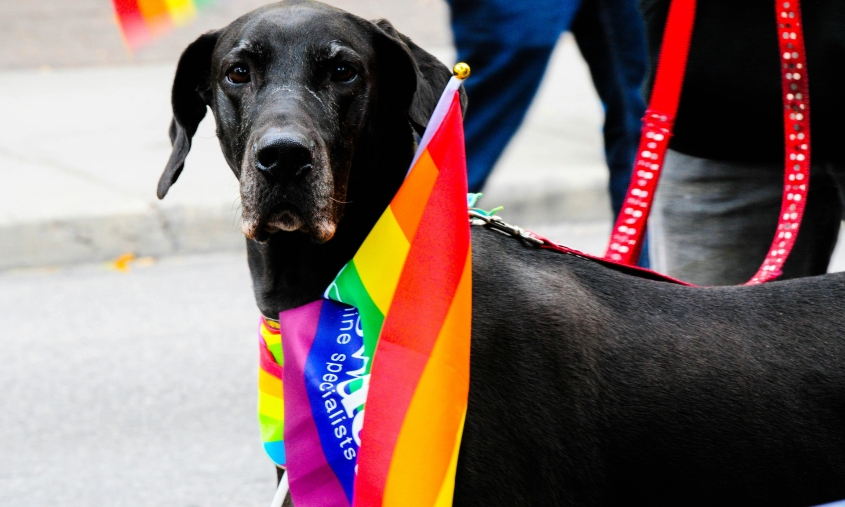
National Association for Black Veterinarians
The mission of NABV is to "advocate, provide support, and cultivate an inclusive community for Blacks in veterinary medicine at every level of the profession through the organization, members and leadership." The purpose of the chapter is to provide support and community to Black students at CUCVM, to maintain strong relationships with Black alumni, and to offer opportunities for Black and minority pre-veterinary students to understand the field better.
Latinx Veterinary Medical Association
To empower Latinx students and professionals in veterinary medicine and support aspiring Latinx veterinarians to better serve client demographics or "the next generation of Latinx veterinarians."
Learn more or join
Jewish Association of Veterinary Students
The purpose of Jewish Association of Veterinary Students shall be to provide a safe and inclusive association through which to practice and promote Jewish culture and customs through various events and gatherings, holiday celebrations, and community engagement. The organization also aims to engage with veterinary students interested in learning more about and engaging with Jewish culture and customs to further foster understanding and inclusivity on the veterinary college campus.
Pride Student VMC Cornell (Broad Spectrum)
Student Pride VMC (formerly Broad Spectrum) strives to support, represent, and advance the interests of lesbian, gay, bisexual, transgender and nonbinary, questioning, intersex, asexual, and otherwise gender/sexuality-marginalized (LGBTQIA+) students, faculty, and staff affiliated with Cornell College of Veterinary Medicine (CVM).
We aim to foster inclusivity for LGBTQIA+ persons within the CVM community by organizing safe-space social gatherings, hosting speakers and educational events, advocating for LGBTQIA+ needs within the context of CVM, and collaborating with Pride VMC and other Student Pride VMC chapters to discuss the broader status of LGBTQIA+ individuals in veterinary medicine.
The Association of Asian Veterinary Medical Professionals
- Provide professional and educational resources to AAPI veterinary professionals, veterinary students, and clients.
- Encourage an interest in veterinary medicine among AAPI youth and support aspiring AAPI veterinary professionals through providing mentorship and other educational resources.
- Facilitate networking opportunities among AAPI veterinary professionals.
- Collaborate with similarly aligned diversity initiatives and affinity groups to advocate for greater general diversity in the veterinary profession.
Women’s Veterinary Leadership Development Initiative
The purpose of this organization shall be to achieve leadership excellence in every veterinary medicine sector that fully reflects the profession's diversity and society. This organization shall support women in seeking and achieving leadership, policy, and decision-making positions within all areas of professional veterinary activity. This organization shall provide support and opportunities for students to learn leadership skills, and develop mentoring relationships.
Social and Recreational Clubs
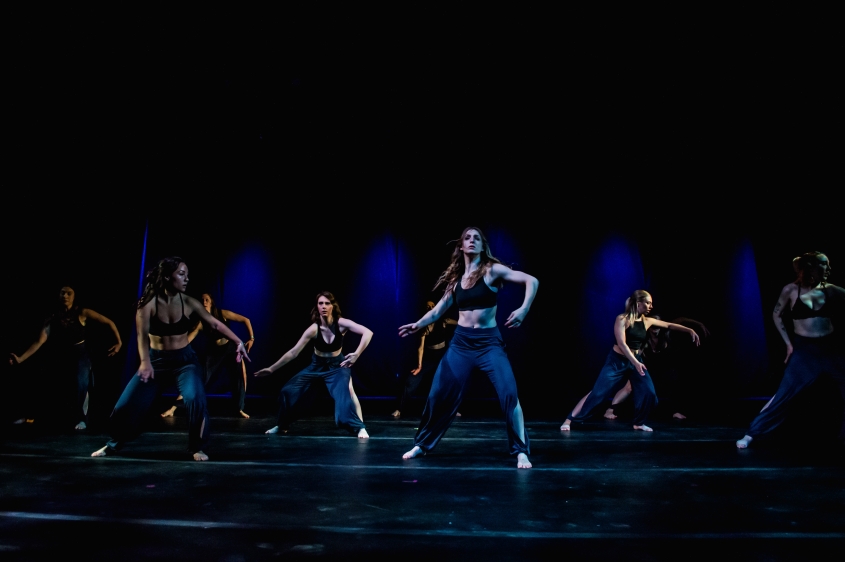
Dance Collective
The purpose of the CUCVM Dance Collective is to bring together the dance community within the Cornell University College of Veterinary Medicine by celebrating our enthusiasm for art, music, and dance. As a non-audition-based dance group open to students of any level and style of dance, we serve as a creative outlet for students who would like a fun and casual way to express movement and meet others with similar interests during our bi-monthly open classes.
In addition, the CUCVM Dance Collective also offers performance opportunities to students who would like to choreograph and perform. Such opportunities include our annual Spring Showcase, which provides student choreographers a venue to present their work to the community.
Dawghouse FC
As students of the College of Veterinary Medicine (CVM), we know firsthand that much work and pressure is constantly being pushed onto us. We want to create a space where we can relieve some of that stress through soccer! Soccer is a fantastic way to run off steam, have fun exercising, engage in healthy competition, and meet new people.
We intend to develop this club to provide an outlet for school work and help develop soccer skills, teamwork, and confidence in a fun and safe environment. The club is open to all who want to play soccer, both undergraduate and graduate students, with the idea that the grad students can also help mentor the undergrads in a less formal environment. The Dawgs look forward to playing on campus year-round, indoors and out. We hope you can join us!
Omega Tau Sigma (OTS)
OTS is the largest coed professional veterinary fraternity at Cornell University, serving many valuable functions for its members. It provides a social outlet for stressed-out students, throwing parties throughout the year. In addition, OTS is a great way to meet members of other classes, which is often difficult due to everyone's different schedules.
Finally, and most importantly, OTS allows students to get out into the community with various philanthropy/community service projects each semester, such as our regular blood drives and annual Charity Ball. The Omega Tau Sigma (OTS) house is at 200 Willard Way, and up to 12 members can live there.
Tabletop Vets
Tabletop Vets is a graduate/professional school organization founded to foster an environment in which all members of the Cornell Community may safely gather to play tabletop games. Members play various games, including board, card, and paper games, in a setting that encourages social interaction and positive mental well-being.
UltraSound A Capella
Ultrasound is the vet school's very own a cappella singing group. Ultrasound has provided a creative outlet for the past four years for singing enthusiasts. No auditions and rehearsals are held once a week for two hours. Their repertoire ranges from contemporary tunes to Doo-Wop to Jazz. UltraSound has performed at several college functions.
Veterinary Players
The Vet Players aims to foster creativity among veterinary students and provide a creative outlet for exploration. The organization promotes communication, community, and creativity by organizing theatrical events and productions throughout the academic year.



